Photography courtesy of Lowell Washburn, all rights reserved.
The spring waterfowl migration is one of my favorite events on the annual outdoor calendar. Anxious to get to northern nesting grounds, the first flocks of ducks began dotting the Iowa skies as soon as area wetlands began to thaw. Once open water appears, migrant numbers steadily escalate as temperatures warm.
Although northbound fowl can be viewed from the car window, you’ll receive a greater reward by adopting a more aggressive approach. As always, the best way to get up close and personal with migrating ducks is by tossing out the decoys. Decoys worked last fall, and they’ll work now. The big difference is that, instead of a loaded shotgun, you’re now armed with binoculars and a camera lens.
Slogging into a wetland with a bag or two of decoys may require some work, but the rewards will far outweigh the extra effort. As flocks begin splashing down around your blind, the marsh quickly becomes a vibrant outdoor classroom. With a potential of more than twenty web-foot species to choose from, the close-range bird show will far exceed anything you could have viewed from the marsh parking lot. Whether courting, feeding, or resting, each duck species has its own unique behavior. Listening and watching as birds interact provides a crash course in ornithology, while rapidly increasing your library of avian knowledge.
When compared to autumn waterfowl outings, you’ll notice a distinct lack of competition. At this time of the year, there is no need to arrive in the middle of the night to secure your favorite spot. Although there must certainly be other waterfowl enthusiasts using duck decoys in spring, they are apparently few and far between. I’ve been setting decoys during the spring migrations since high school and have yet to encounter another spread. Perhaps duck hunters haven’t realized that the Iowa camera season is never closed.
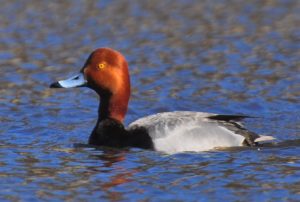
LW
Miller’s Bay — March 2021

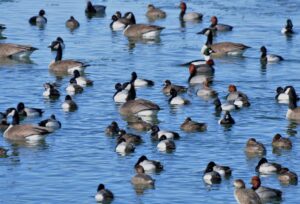
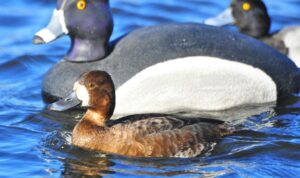
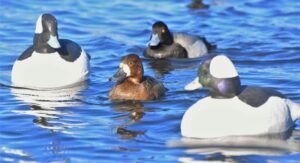
 Susan Judkins Josten
Susan Judkins Josten Rudi Roeslein
Rudi Roeslein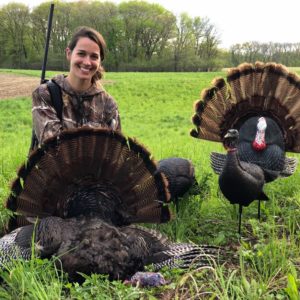 Elyssa McFarland
Elyssa McFarland Mark Langgin
Mark Langgin Adam Janke
Adam Janke Joe Henry
Joe Henry Sue Wilkinson
Sue Wilkinson Tom Cope
Tom Cope Kristin Ashenbrenner
Kristin Ashenbrenner Joe Wilkinson
Joe Wilkinson Dr. Tammy Mildenstein
Dr. Tammy Mildenstein Sean McMahon
Sean McMahon